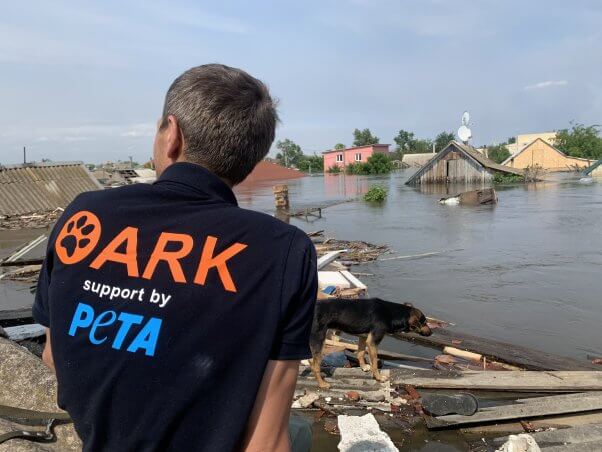Lakeland diners just might think twice about chowing down on fried chicken after they see—and hear—“Hell on Wheels,” PETA’s guerilla-marketing campaign featuring a life-size chicken transport truck covered with images of real chickens crammed into crates on their way to a slaughterhouse, complete with actual recorded sounds of the birds’ cries and a subliminal message every 10 seconds suggesting that people go vegan. The vexatious vehicle will debut outside Frescos Southern Kitchen & Bar before moving on to confront diners at LoveBird Almost Famous Chicken, Zaxby’s, PDQ, Chick-fil-A, The WingHouse Bar & Grill, 4 Rivers Smokehouse, Grillsmith, Smokey Bones, Hooters, and BubbaQue’s BBQ.
When: Saturday, January 6, 12 noon
Where: Outside Frescos Southern Kitchen & Bar, 132 S. Kentucky Ave., Lakeland
“Behind every barbecued wing or bucket of fried chicken is a once-living, sensitive individual who was crammed onto a truck for a terrifying, miserable journey to their death,” says PETA Executive Vice President Tracy Reiman. “PETA’s ‘Hell on Wheels’ truck is an appeal to anyone who eats chicken to remember that the meat industry is cruel to birds and the only kind meal is a vegan one.”
PETA—whose motto reads, in part, that “animals are not ours to eat”—opposes speciesism, a human-supremacist worldview, and offers a free vegan starter kit on its website.
For more information, please visit PETA.org, listen to The PETA Podcast, or follow the group on X (formerly Twitter), Facebook, or Instagram.
The post ‘Hell on Wheels’ Is Coming: Squawking Chicken Truck to Ruffle Feathers Outside Lakeland Restaurant appeared first on PETA.



